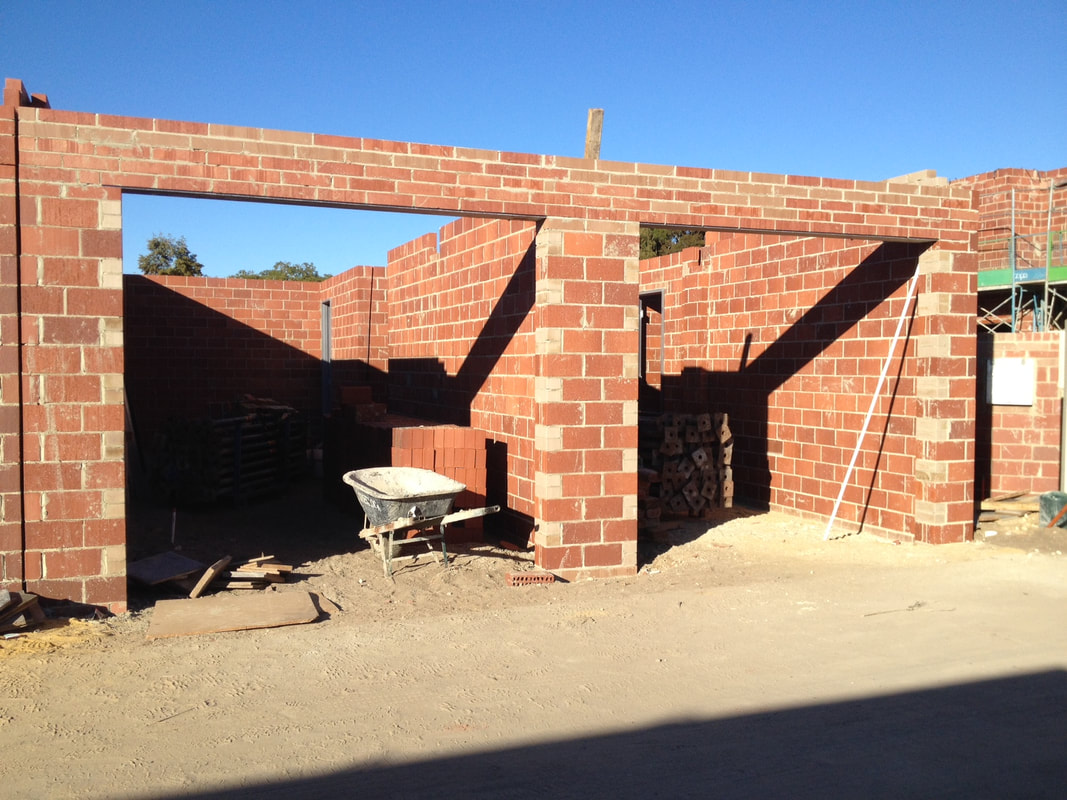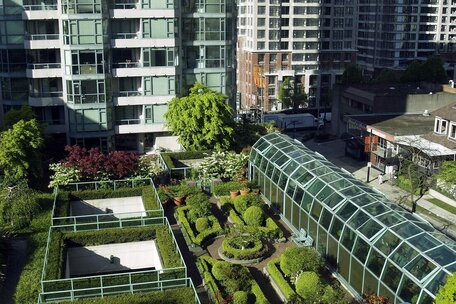|
Frequently problems occur on construction projects because of misunderstandings and poor communication. It’s vital that:
Learn more about renovating and building housesPaul Netscher has written 2 easy to read books 'An Introduction to Building and Renovating Houses - Volumes 1 and 2'. An Introduction to Building and Renovating Houses Volume 1 deals with Hiring Contractors, Managing Construction and Finishing Your Home. and Designing your ideal home Volume 2 deals with Finding Your Ideal Property and Designing Your Dream Home.
("Great for those that DIY. Very helpful in home renovations!" said a Reader on Amazon.com 5*****) These books are available from Amazon and other online bookstores in paper and ebook. © 2020 This article is not to be reproduced for commercial purposes without written permission from the author.
0 Comments
I started this series with an article: Home build and renovation contracts part 1 - what you should know followed by my next article Home build and renovation contracts part 2 - the rules of the project. Last week I discuss what should be included in a home build or renovation contract with your contractor: Home build and renovation contracts part 3 - What contracts should include. In this article I discuss different types, or forms, of contract. Types of home building contractsBuilding contracts can be standard industry documents, contractor drafted contracts, or even your own form of contract. For most building projects contractors prefer using their form of contract. This is particularly the case with suppliers, installers and home-builders. However, it’s possible to use an industry standard form of contract, or you may prepare your own contract. It should be noted that many contractors will be loath to sign contract documents that owners have prepared. If you want to use a specific form of contract this should be given (or specified) when the contractor is requested to price the work. Asking the contractor to sign a contract document which they didn’t have when they priced the project may give them an opportunity to submit a variation claim. If the terms of the contract you propose using are too onerous then contractors could decline to price your project. The motto of any contract should be to keep it simple and always seek expert advice. Standard forms of contractThere are many standard forms of construction contract which are used internationally, within certain countries, or are promoted by some construction industry bodies. So for instance there is often a contract for home builders. The advantage of using a standard form of contract is that they’ve been tailored to specific needs of that industry, they have been drafted by experts within the industry, have been tested legally in the country, they are usually complete and fair to both parties and they’re usually readily understood by contractors. Unfortunately some contractors are tempted to tinker with the contract, deleting some clauses and adding others. This could make the contract one-sided, even unworkable with contradictions and loopholes. Some of these contracts are licensed and there’s a small fee to be paid to the originators of the document. Failing to pay this fee could make the document null and void. Many of these documents can only be used on condition that the main clauses aren’t altered. Usually these documents provide blank spaces to insert the names and addresses of the contracting parties, the contract price, start and completion dates, and project specific conditions. All pages to the contract should be signed by you and the designated representative of the contractor (usually the owner or a person appointed by the owner). It should be noted that even when using a standard form of contract this will in most cases refer to the special conditions and the specifications pertaining to your project. But again, you should take care that the special conditions included in the contract document don’t conflict with the general conditions causing ambiguity. Contractor drafted contractsOften contractors draft the contract documents. Many of these documents are flawed since they could offer you little protection, they are often one-sided giving the contractor rights to literally do as they please, they could contain contradictory clauses, or they’re incomplete and don’t include some important points. If you’re prepared to accept such a contract you need to carefully check the terms to ensure that they’re agreeable to you and that you will be protected should a dispute arise. It’s always worth having a legal expert scrutinise the contract. Check the contract to ensure that all the items that you want included in the contract have been included. The contract is your protectionThere are different forms of building contract. As we've previously discussed they should include certain items. They must provide protection for both the client (you) and the contractor and they should not place excessive risks on one of the parties, particularly risk which they cannot reasonably control. It's best to use a standard form of building contract which is applicable to the work, and one which is regularly used in building works in your country. This contract should not be altered, or have clauses modified or deleted unless the clauses really aren't applicable to your building project. It's vital that you read through the building contract before signing it to ensure that the terms and conditions of the contract are clear and they are the terms that you agree with. The contract should clearly layout the responsibilities of the parties and how the contractor will be paid. Failing to read or understand the building contract will not be an excuse for you not being bound by the terms of the contract. The contract must not have ambiguous or contradictory clauses and it must be enforceable under the law of the country. A faulty building contract often leads to misunderstandings and disputes, and you may have little protection should things go wrong with your construction project.  This is an extract from 'An Introduction to Building and Renovating Houses: Volume 1' written by Paul Netscher. Please like, share and comment. Learn more about renovating and building housesPaul Netscher has written 2 easy to read books 'An Introduction to Building and Renovating Houses - Volumes 1 and 2'. An Introduction to Building and Renovating Houses Volume 1 deals with Hiring Contractors, Managing Construction and Finishing Your Home. and Designing your ideal home Volume 2 deals with Finding Your Ideal Property and Designing Your Dream Home.
("Great for those that DIY. Very helpful in home renovations!" said a Reader on Amazon.com 5*****) These books are available from Amazon and other online bookstores in paper and ebook. I started this series with an article: Home build and renovation contracts part 1 - what you should know followed by my next article Home build and renovation contracts part 2 - the rules of the project. Today I discuss what should be included in a home build or renovation contract with your contractor. Things to include in the contract are:
It’s advisable to get an expert to check the contract before signing it. It’s important to check that the contents of the contract cover all the work the contractor was asked to price and that there aren’t additional clauses which weren’t included in the original pricing documents.  This is an extract from 'An Introduction to Building and Renovating Houses: Volume 1' written by Paul Netscher. Please like, share and comment. Learn more about renovating and building housesPaul Netscher has written 2 easy to read books 'An Introduction to Building and Renovating Houses - Volumes 1 and 2'. An Introduction to Building and Renovating Houses Volume 1 deals with Hiring Contractors, Managing Construction and Finishing Your Home. and Designing your ideal home Volume 2 deals with Finding Your Ideal Property and Designing Your Dream Home.
("Great for those that DIY. Very helpful in home renovations!" said a Reader on Amazon.com 5*****) These books are available from Amazon and other online bookstores in paper and ebook. © 2020 This article is not to be reproduced for commercial purposes without written permission from the author. People around the world recognize the benefits of rooftop gardening. The fact that there's only so much land left for people to own, while a rooftop garden also helps improve the air quality of inner cities. Countries like France, Canada, and Switzerland have laws requiring new residential buildings have at least one green rooftop. The success of a rooftop garden lies in its incredible benefits. Here are some of the key benefits of a rooftop garden. Improves Air Quality One of the reasons that rooftop gardens are famous in modern cities are their efficiency in cleaning the air. Vehicles create several harmful pollutants and a small garden on rooftops or balconies contributes to filtering polluted particles. Efficient disposal of biodegradable waste People consume fruits and vegetables daily. It creates bio-waste as not all the parts of a vegetable are consumable. You can always buy fertilizers and compost for soil fertility. How about using the biodegradable waste from your kitchen? It’s a lot better way than dumping it into the dustbin. The rooftop garden serves as an excellent way to reduce the amount of bio-waste. You need to dig around the top layer of the soil to dump all the waste products. Spread it evenly under the top layer around the plant to ensure that it gradually releases the essential nutrients in the soil. In summer seasons, a rooftop garden requires a lot of water due to sun exposure. As you might have limited access to the water in summer, you can use bio-waste to keep the soil moist and help the loss of water as well. Regulates temperature When the roof surface exposed to direct sunlight is covered with a lush green garden, it creates heat insulation. According to a study, rooftop gardening helps to regulate the temperature of your house. As we tend to use an air conditioner in summer and spring, it also means less expense on your electricity bills. Moreover, the application of the rooftop is not limited to summers only. It helps against the loss of heat in winters as well. Rainwater Conservation Every year, millions of gallons of rainwater go down the drain and into the ocean. Yet, for our daily water requirements, we still depend on municipal water supply. If only we could store the rainwater in the first place, we might be able to use the supply water where it's necessary. We can save catch up to 60-80% of rainwater by creating a rooftop garden. You could even store the excess water for later use. Increases Property values It's no wonder why a rooftop garden increases the overall value of a house. Lack of enough land space is one of the biggest problems of urban areas in the 21st century. Rooftop gardens have revolutionized gardening, with more people demanding the luxury of greenery in their premises. Today, a rooftop garden substantially increases the selling price of any house. In many major cities, the addition of a rooftop garden adds as much as 15-20% more value to its property value. Roof top and balcony gardens make for an attractive place to relax and enjoy the outdoors in the middle of bustling cities. Grow your own food Rooftops and balconies can also be used to grow herbs, vegetables and fruit to supplement your groceries. Not only can you enjoy your own fresh produce, but you can save on your grocery bills, while reducing your carbon footprint. Regulates Urban Heat Island Effect UHI (Urban Heat and Island) effect is a term that is used to describe the increased temperature levels in an urban area. The urban areas are made up of concrete jungle. Due to the heat exposure, the concrete gets hotter, making the inside of the concrete unlivable for the people. In such a case, we end up increasing the AC and other cooling devices for comfort. UHI can be controlled with the help of rooftop gardening. The evaporation cycle of plants helps cool down the city. As plants are covering most of the rooftop it lowers the UHI effect. Prevents noise pollution The insulation provided by the rooftop gardening is not limited to temperature fluctuations. A thick layer of soil combined with plants absorbs, reflects, deflect noise pollution from vehicles and other sources in a city. If your house is near an airport or lies underneath flight paths, you might want to try rooftop gardening at your home. Conclusion Whether its water conservation, preventing noise pollution, or savings on electricity bills, rooftop gardening has a wide range of benefits. Moreover, it's a pure joy to see greenery around your house. It sends all the positive vibes to start your day, and there's nothing better than sipping a cup of coffee in the mornings around the greenery. Author Bio: Emily Bartels is a content writer at The Irrigation Shop. She enjoys writing on various topics mainly associated with Home Improvement, Gardening, Technology and Gadgets. Her famous articles are on the topic of Home Improvement , Technology and many more. Want to learn more about renovating and building houses?Paul Netscher has written 2 easy to read books 'An Introduction to Building and Renovating Houses - Volumes 1 and 2'. An Introduction to Building and Renovating Houses Volume 1 deals with Hiring Contractors, Managing Construction and Finishing Your Home. and Designing your ideal home Volume 2 deals with Finding Your Ideal Property and Designing Your Dream Home.
("Great for those that DIY. Very helpful in home renovations!" said a Reader on Amazon.com 5*****) These books are available from Amazon and other online bookstores in paper and ebook. |
AuthorI’m a construction professional, author of several successful construction management books, and a home owner. I’ve made mistakes in construction management, I’ve seen others make mistakes, but importantly I’ve had multiple successful construction projects and I’ve learned from the mistakes. I want to share these lessons and my knowledge with you. Also available from:
Amazon Au, Amazon DE, Amazon ES, Amazon CA, Amazon IT, Amazon FR, Amazon NL, Amazon India and 'An Introduction to Building Houses - Volume 2 Finding Your Ideal Property and Designing Your Dream Home'
Archives
July 2024
CategoriesWe welcome genuine comments, especially comments that add additional information to the subject matter in the article. We however reserve the right to remove inappropriate comments, which includes comments that have nothing to do with the subject, comments that include inappropriate language, and comments that are an advertisement for a product or company, or which include an advertising link. Comments must be in English. We will not enter into discussion on why a particular comment was removed.
|













 RSS Feed
RSS Feed


